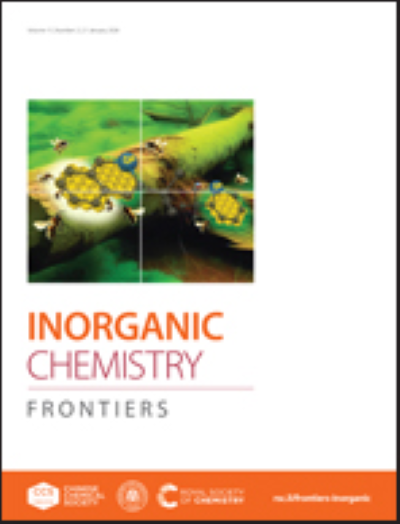分级结构、酸度适中的Ga-MFI分子筛在低密度聚乙烯催化裂化中的优越性能
IF 6.4
1区 化学
Q1 CHEMISTRY, INORGANIC & NUCLEAR
引用次数: 0
摘要
为了解决废塑料管理的全球挑战,利用沸石催化剂的催化裂化为将塑料转化为有价值的产品提供了一种可持续的方法。沸石的酸性和扩散是决定该过程效率的关键因素。然而,传统的含铝沸石表现出过度的酸性,这导致气体的形成增加和液体产物的产量降低。此外,由于大分子的扩散有限,微孔沸石的活性和整体利用效率受到严重影响。在这项研究中,我们开发了镓修饰的MFI分子筛催化剂(Ga-MFI),该催化剂具有良好的微孔和介孔平衡以及可控的酸度。与ZSM-5催化剂相比,这些Ga-MFI催化剂具有增强的扩散特性和中等酸度,有助于提高汽油收率(64.84-77.69%),同时显著降低低密度聚乙烯(LDPE)催化裂化过程中的液化气收率(从23.21%降至13.07%)。此外,Ga-MFI催化剂对液体产物中环烯烃的选择性也有显著提高,从35.62%提高到51.53%。这种改进可归因于促进了发生在中酸性位点的双分子裂化反应,这有利于烯烃的形成,以及高浓度的路易斯酸位点有助于环烷烃脱氢成环烯烃。这些发现强调了Ga-MFI沸石作为塑料废物可持续转化的有前途的催化剂的潜力。本文章由计算机程序翻译,如有差异,请以英文原文为准。
Superior performance of Ga-MFI zeolite with hierarchical structure and moderate acidity in the catalytic cracking of low-density polyethylene
Addressing the global challenge of waste plastic management, catalytic cracking utilizing zeolite catalysts offers a sustainable approach for converting plastics into valuable products. The acidity and diffusion of zeolites play a critical role in determining the efficiency of this process. However, conventional aluminum-containing zeolites exhibit excessive acidity, which results in increased gas formation and a diminished yield of liquid products. Additionally, microporous zeolites with limited diffusion of large molecules significantly impair their activity and overall utilization efficiency. In this study, we developed gallium-modified MFI zeolite catalysts (Ga-MFI) that possess a well-balanced micro- and mesoporosity along with controlled acidity. These Ga-MFI catalysts exhibited enhanced diffusion properties and moderate acidity, which contributed to an improved gasoline yield (64.84–77.69%), alongside a significant reduction in liquefied gas yield (from 23.21% to 13.07%) during the catalytic cracking of low-density polyethylene (LDPE) when compared to the ZSM-5 catalyst. Furthermore, the Ga-MFI catalysts demonstrated a significant enhancement in the selectivity for cycloalkenes within the liquid products, increasing from 35.62% to 51.53%. This improvement can be attributed to the promotion of bimolecular cracking reactions occurring on moderate acidic sites, which facilitate olefin formation, as well as the high concentration of Lewis acid sites that aid in the dehydrogenation of cycloalkanes to cyclo-olefins. These findings underscore the potential of Ga-MFI zeolite as a promising catalyst for the sustainable conversion of plastic wastes.
求助全文
通过发布文献求助,成功后即可免费获取论文全文。
去求助
来源期刊

Inorganic Chemistry Frontiers
CHEMISTRY, INORGANIC & NUCLEAR-
CiteScore
10.40
自引率
7.10%
发文量
587
审稿时长
1.2 months
期刊介绍:
The international, high quality journal for interdisciplinary research between inorganic chemistry and related subjects
 求助内容:
求助内容: 应助结果提醒方式:
应助结果提醒方式:


